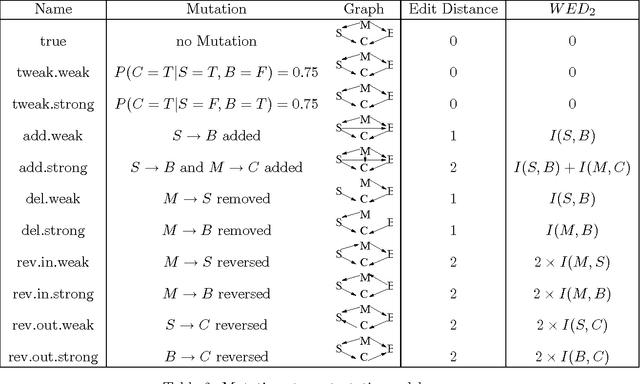Causal KL: Evaluating Causal Discovery
Paper and Code
Nov 11, 2021



The two most commonly used criteria for assessing causal model discovery with artificial data are edit-distance and Kullback-Leibler divergence, measured from the true model to the learned model. Both of these metrics maximally reward the true model. However, we argue that they are both insufficiently discriminating in judging the relative merits of false models. Edit distance, for example, fails to distinguish between strong and weak probabilistic dependencies. KL divergence, on the other hand, rewards equally all statistically equivalent models, regardless of their different causal claims. We propose an augmented KL divergence, which we call Causal KL (CKL), which takes into account causal relationships which distinguish between observationally equivalent models. Results are presented for three variants of CKL, showing that Causal KL works well in practice.
 Add to Chrome
Add to Chrome Add to Firefox
Add to Firefox Add to Edge
Add to Edge